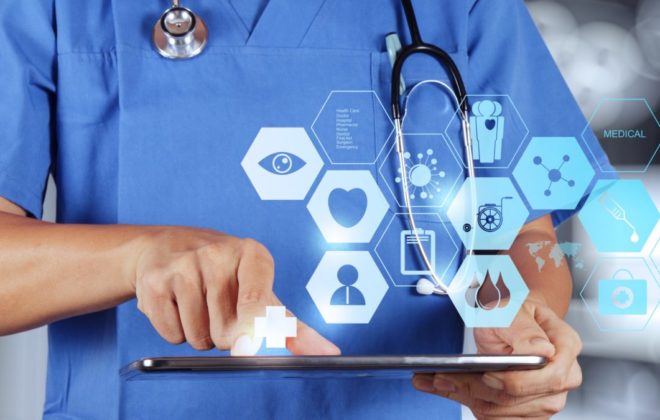Can Machine Learning Bring a Paradigm Shift in Healthcare?
In a world where patients are getting more and more involved in their own health, the problems of manual processes are many. Having medical records, research documents, lab reports, doctor prescriptions, etc. on paper restricts seamless understanding and sharing of important health information that ultimately affects care outcome. Although advancements in healthcare technology have been remarkable, the information they provide is not sufficient to make improved healthcare decisions. What is required, in my opinion, is for healthcare information to be enhanced by the power of analytics and machine learning.
The Benefits of Machine Learning in Healthcare
Through advanced analytics, machine learning can help provide better information to doctors at the point of patient care. Having easy access to vital signs is not enough. Being able to predict patients’ risk for stroke, kidney failure or diabetes based on the last 20 lab test results, race, family history, socioeconomic status, and latest clinical trial data is what can truly enhance care outcomes.
Providing relevant and timely information to clinicians can help them make better decisions about patient diagnoses and treatment options while understanding the possible outcomes and cost for each. The value of machine learning in healthcare is enormous; its ability to process huge datasets beyond the scope of human capability and convert that data into clinical insights can aid physicians in planning and providing care – ultimately leading to better outcomes, lower costs of care, and increased patient satisfaction.
Bringing a Paradigm Shift
Machine learning in healthcare has been making several headlines. Google’s deep learning system aims to tame EHRs in order to better predict healthcare outcomes. Stanford is using a machine learning algorithm to detect cancer. And IBM Watson Health is bringing precision medicine to cancer patients with greater accuracy. It’s clear that machine learning adds immense value to clinical decision making. Here’s how it is bringing a paradigm shift in healthcare:
- Machine learning can help analyze data and loop it back in real time to physicians to aid in clinical decision making. As soon as a physician sees a patient, he can enter symptoms and test results into the EMR and learn everything about the patient’s medical history for improved diagnosis and treatment.
- While testing a patient for cancer, machine learning can help provide the highest-quality biopsy results with a high degree of accuracy in a fraction of time. Microsoft’s Project InnerEye, for instance, is an innovative machine learning tool helps radiologists identify and analyze 3-D images of cancerous tumors.
- With diagnostic errors contributing to approximately 10 percent of patient deaths, machine learning can help run predictive algorithms while a doctor is examining his patient, and display real-time diagnosis, pathology results, and treatment options for improved care outcomes.
- Machine learning can also allow medical researchers to generate new hypotheses with the help of dynamic visualizations and evidence-backed predictions for drug discovery. IBM’s cloud-based cognitive solution “Watson for Drug Discovery analyzes scientific knowledge and data to reveal known and hidden connections that can help increase the likelihood of scientific breakthroughs.”
- Machine learning also finds great application in directing clinical trial research – by leveraging more qualified data, it can identify the right candidates for trials while simultaneously reducing patient risk, improving trial quality, and reducing trial cost. Healthcare major Novartis is leveraging machine learning to conduct better research and monitor clinical trials.
- As mHealth and healthcare wearables market skyrocket, machine learning can help patients and practitioners efficiently analyze app data. By creating visual flows and real-time dynamic charts, they can get insight into important health information like daily step count, calorie intake, and heart rate. Apple’s ResearchKit allows researchers and developers to create powerful apps for medical research and build surveys for modal presentation on iOS devices.
- In addition to being used to analyze what’s going on with patients in real-time (and offering personalized treatment), machine learning can also be used to unearth health information of similar patients in multiple healthcare systems, the applicable clinical trials, and the effectiveness and cost of new treatment options.
Deploy it Today
If you’re looking to leverage the benefits of machine learning, its time you stop looking at machine learning as a futuristic concept but consider it as a real-world tool that can be deployed today. For machine learning to drive better care outcomes, what is needed is a step-by-step approach into incorporating analytics and predictive algorithms into everyday clinical practice. Regardless of all the effort by a human caregiver, a machine learning platform could input substantially more data behind the scenes and deliver decisive information to the physician in real time. By combining machine learning with human expertise, you can incorporate bigger sets of data, identify specific areas of focus, and provide deep insights to the provider and patient.




